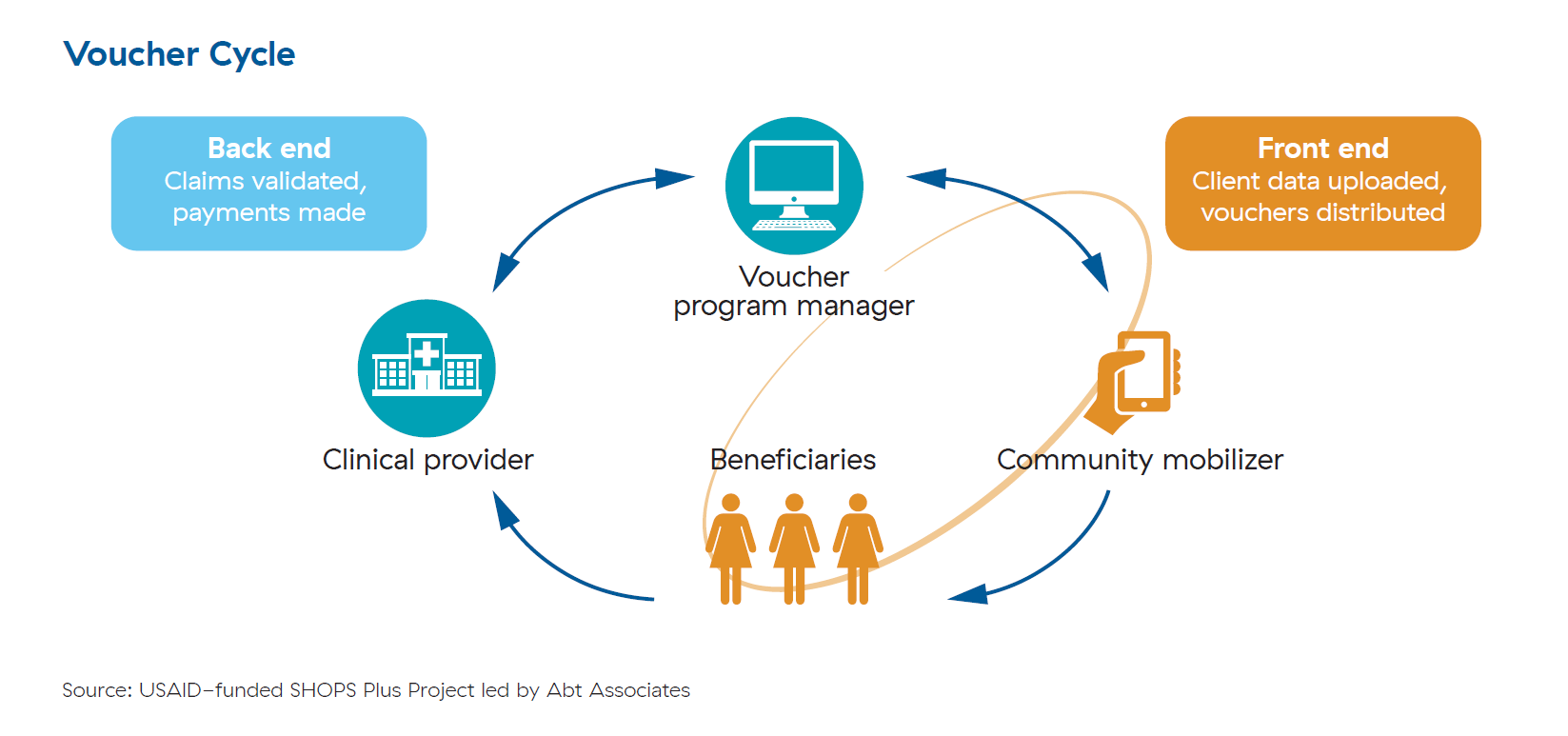Webinar and brief explore growing trend: e-voucher programs
E-voucher programs can be more efficient, flexible, and scalable than traditional paper voucher programs, but they have several limitations, according to a new brief published by SHOPS Plus.
The project shared findings from this brief in a webinar on November 26. Watch the recording.
The brief examines the advantages of e-vouchers, barriers to their use, cost considerations, and future trends. The findings will help program implementers assess the feasibility of using e-vouchers and whether they add value in meeting program objectives. The focus of the brief is on the channel of voucher distribution or the front end of the system facing the beneficiary, depicted here.

Each year, more voucher programs are transitioning from paper to digital vouchers. We wanted to take a step back and learn from the experiences of these e-voucher programs to help guide family planning program implementers. Although e-voucher programs have many advantages, they may not make sense for every program.”
– Pamela Riley, digital health advisor of SHOPS Plus and author of the new brief
After reviewing the available literature on e-voucher programs, Riley conducted informant interviews with e-voucher program managers, implementers, evaluators, and technology organizations working in Africa, Asia, and the Middle East. Three key informants presented at the webinar on November 26.
In the context of family planning programs, vouchers are considered a High Impact Practice Enhancement.
To determine whether e-voucher systems are feasible, voucher programs must first assess readiness within the local context. Considerations include the state of mobile infrastructure, the digital literacy of community mobilizers, the capacity of program staff to manage technology partners, and the objectives of the program.
More research is needed to compare costs and benefits under various e-voucher program scenarios and examine any social or economic impacts from transitioning to electronic vouchers in terms of financial inclusion, digital literacy, and responsiveness of service delivery.